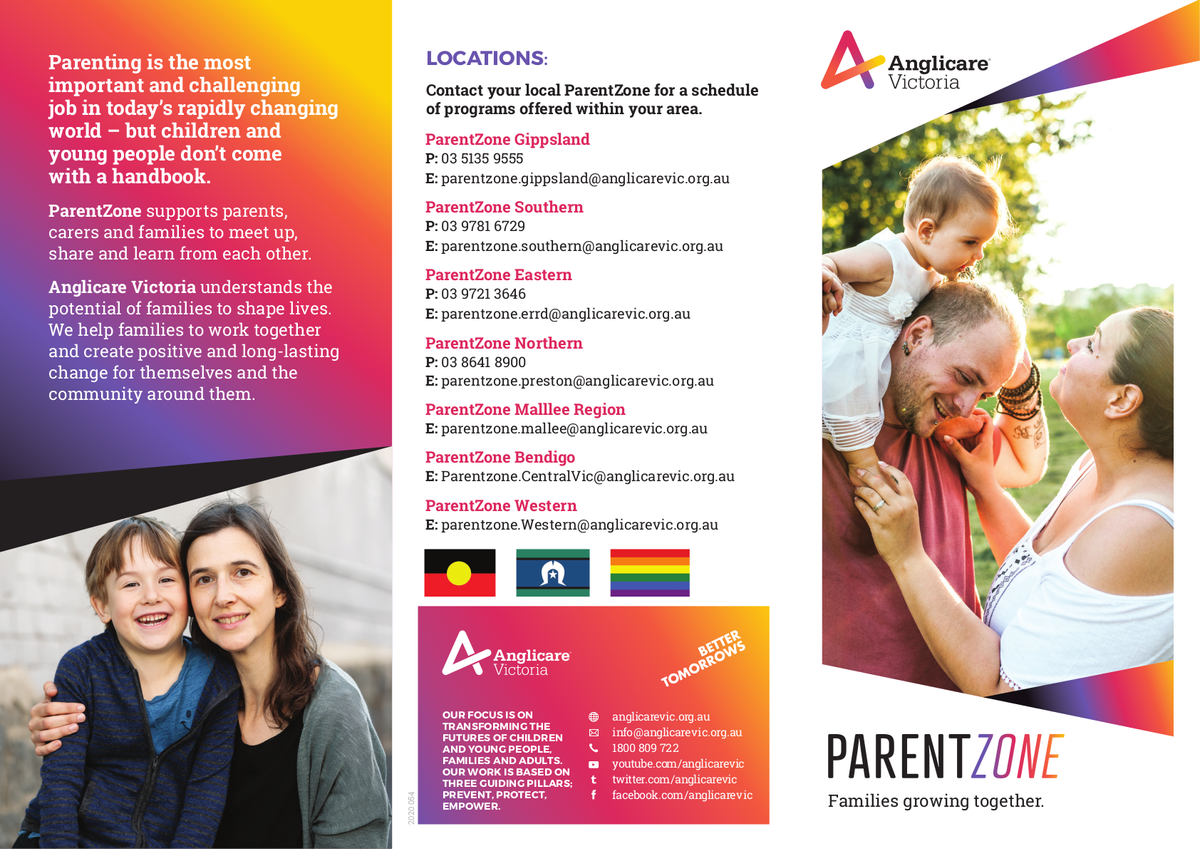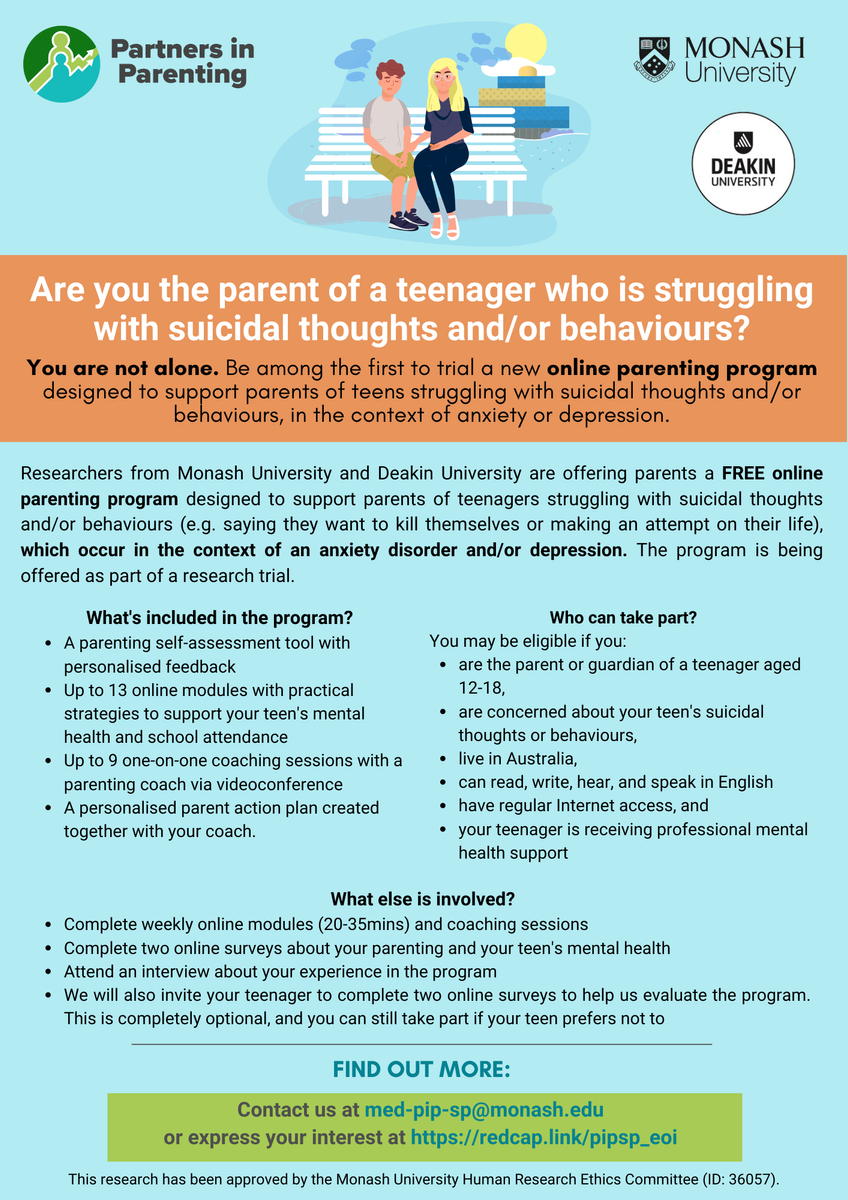Parent Wellbeing
Wellbeing

Parent Wellbeing
Wellbeing
Adolescence can be a challenging time for both teens and their parents. As a parent, witnessing your teen struggle with mental health issues can be distressing and overwhelming. However, it's essential to remember that you are not alone, and there are steps you can take to support your teen during this difficult time. This article aims to provide guidance on how to navigate the complexities of supporting a teenager dealing with mental health challenges.
Recognize the Signs: The first step in helping your teen is to recognize the signs of mental health issues. Be attentive to changes in their behaviour, such as withdrawal from social activities, declining academic performance, increased irritability, mood swings, or extreme sadness. Physical symptoms like changes in sleep patterns and appetite may also indicate potential problems.
Encourage Open Communication: Create a safe and non-judgmental environment that encourages your teen to talk openly about their feelings and emotions. Let them know that you are there to listen and support them without criticism or condemnation. Avoid jumping to conclusions or offering immediate solutions; sometimes, all they need is someone who will genuinely listen.
Educate Yourself about Mental Health: Take the initiative to learn about common mental health issues that affect teenagers, such as anxiety, depression, eating disorders, self-harm, and substance abuse. Knowledge empowers you to better understand what your teen might be going through and helps you respond with empathy and compassion.
Seek Professional Help: If you notice persistent or severe signs of mental distress in your teen, don't hesitate to seek professional help. Mental health professionals, such as psychologists, therapists, or counsellors, are trained to assess and provide appropriate interventions. Early intervention can make a significant difference in their recovery.
Break the Stigma: In some societies, mental health is still stigmatized, leading to teens avoiding seeking help due to fear of judgment. As a parent, you can play a vital role in breaking down this stigma by discussing mental health openly and honestly. Encourage your teen to view seeking help as a sign of strength, not weakness.
Promote Healthy Lifestyle Habits: A healthy lifestyle can positively impact mental well-being. Encourage your teen to engage in regular physical activity, maintain a balanced diet, get enough sleep, and practice relaxation techniques like meditation or deep breathing. Avoid excessive screen time and help them establish a healthy routine.
Stay Connected and Offer Support: Maintaining a strong and supportive relationship with your teen is crucial during this time. Make time for shared activities and conversations regularly. Let them know that you are there to support them, no matter what. Your unwavering support can be a source of comfort and reassurance.
Monitor Social Media Use: Social media can significantly impact a teenager's mental health. Keep an eye on their online presence and address any negative influences or cyberbullying issues promptly. Encourage them to take breaks from social media if needed.
Encourage Healthy Coping Mechanisms: Help your teen develop healthy coping strategies to deal with stress and emotional challenges. This could include engaging in hobbies, journaling, or spending time with supportive friends and family.
Involve the School and Other Support Systems: Inform your teen's school about their struggles, as educators and counsellors can play a crucial role in providing additional support and accommodations. Engage other trusted support systems, such as close relatives or friends, to create a strong support network for your teen.
Look after yourself: Parenting can be hard! Make sure you have support too. Here are some resources:
Parent Line: A dedicated telephone helpline for Parents. 13 22 89.
Reach Out: Psychoeducation and Support for Parents.
Supporting a teen struggling with mental health requires patience, understanding, and empathy. Your role as a parent is not to be their therapist but rather their anchor and advocate. Encourage professional help when necessary, foster open communication, and provide a nurturing environment where they feel safe to express themselves. Remember that progress might take time, but with your support and guidance, your teen can overcome their challenges and develop into a mentally resilient individual.
Parentline: 13 22 89
If you would like further ongoing support, it is recommended that you make an appointment with your family General Practitioner (G.P.) where you can discuss the concerns that you may behaving. The G.P. will then be able to make the appropriate referral for ongoing support as required.










Student Wellbeing Team
Email: wellbeing@wantirnacollege.vic.edu.au
Guiseppe Relia – Wellbeing Coordinator
Talea-Jane Simpson – School Counsellor
Lea Marrison - Mental Health Practitioner
Tajinder Wulff - Mental Health Practitioner